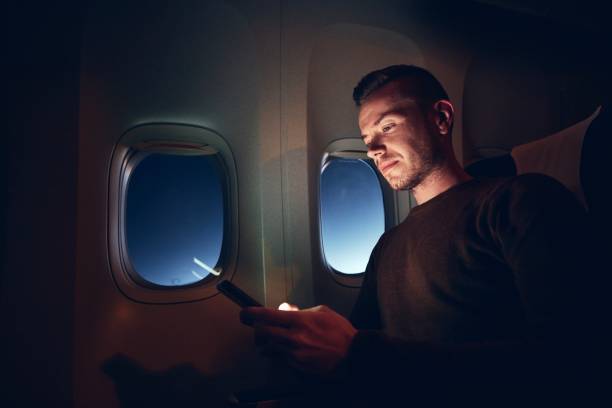When you are souring miles above the surface of the Earth without any cloud cover or protection, can the beaming sunlight from the windows of a plane hurt your skin? Just like a hot summer day on the ground, the strong sunlight from the windows contains UV rays that can cause damage to your skin. Unlike the ground, people on a plane are usually unaware of heat and contact from the sun due to their air-conditioned environment. How severe of a consequence could this prolonged exposure to the sun causes to passengers who travel frequently and, most importantly, the pilots?

When planes are cruising 30,000ft above the earth, they are subjected to more stronger sunlight. Compared to people on the ground, travelers flying in a plane are significantly closer to the ozone layer in the atmosphere, which traps a lot of the sun’s UV radiation. As a result of more powerful sunlight higher in the atmosphere, the amount of UV rays at the altitude a plane is flying at is much higher than the amount on the ground.
Can The Windows Stop These UV Rays?
Airplane windows are made of layers of plastic and glass. Although these materials can stop UVB rays, the ones that cause sunburns, they only stop about half the amount of a more harmful form of UV rays called UVA rays. Different from UVB rays, UVA rays can penetrate deep into the skin and contribute to skin cancer. There is a significant amount of UVA radiation passing through the windows of a plane when the sun is shining through it.
What Does This Mean For Passengers And Crew?
For people travelling only a few times per year, this once-in-a-while exposure to UVA radiation won’t cause much harm, and they’re usually won’t be any lasting consequences. However, for frequent travelers and flight attendants, these prolonged exposures to UVA rays on a plane can lead to severe skin damage and skin cancer. If you travel frequently on a plane, it is recommended to apply sunscreen periodically; usually about every 2 hours. If you don’t want to wear sunscreen during a flight, you can close the windows when you’re cruising at higher altitudes and not leave it open for too long when you want to peek outside. You can also choose to sit in an aisle seat. But what happens to pilots who have to sit in a cockpit surrounded by glass and no aisle seats? For pilots, the only real solution is just to wear sunscreen. Pilots can add a sunlight filtering sheet to the sides of their cockpit windows, but that only protects the sides, not to the front. This reason is unfortunately why pilots are among one of the occupations with the highest risks for skin cancer.

These risks are luckily not on every flight though. Flights that operate during the morning and evening usually don’t have this issue, as the sunlight isn’t as intense. The times during the day where you are exposed to the most UV radiation is between 10AM and 4PM. The amount of exposure also differs on where you are flying on the earth and what season it is. For example, flying during the summer has a higher risk of skin damage than flying in the winter, and flying closer to the equator would be usually more risky than flying near the poles. However at these times and locations, you are still not 100% protected from UV radiation and should still take precautionary measures.

In the end, the answer is yes, UV rays from flying can indeed hurt you. Don’t let this dissuade you from flying though. Unless you’re a frequent flyer, these occasional exposures to UV rays when you fly won’t be too impactful; they would be similar or most likely less than the amount of UV radiation you would experience when going to the beach or being outside for a day. If you are a frequent flyer however, simply remember to apply sunscreen or close the window when you fly, and there most likely won’t be any severe consequences.
Sources:
https://thepointsguy.com/guide/why-you-should-wear-sunscreen-on-a-plane/
The Unexpected Reason Why You Should Always Choose the Window Seat While Flying
https://utswmed.org/medblog/not-so-friendly-skies-why-pilots-and-flight-attendants-have-higher-risk-skin-cancer/
Cover Image: WHAS11.com
Discover more from Aviation for Aviators
Subscribe to get the latest posts sent to your email.




















